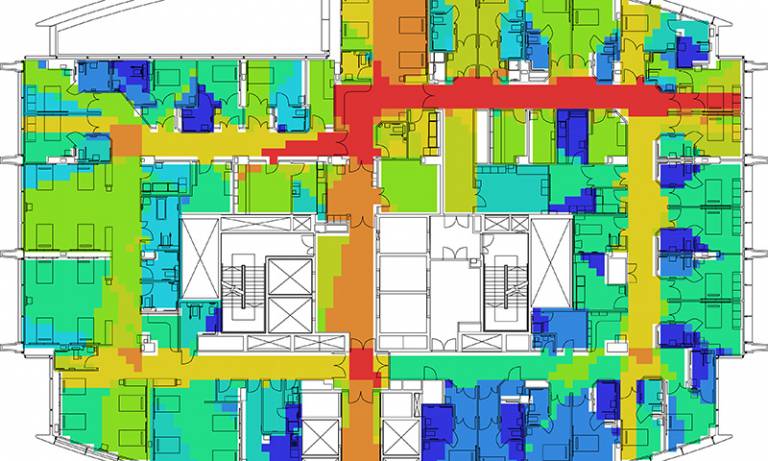Bartlett researchers are awarded funding to tackle anti-microbial resistance
10 August 2017

Two researchers from the Bartlett School of Architecture, Dr Kerstin Sailer and Richard Beckett, have successfully obtained research grants from The Arts and Humanities Research Council (AHRC) to help tackle the global spread of anti-microbial resistance.
The funds come from a larger £2.2million budget for researchers to develop innovative approaches to counter anti-microbial resistance, which causes an estimated 700,000 deaths annually. The eleven projects receiving funding will explore areas such as design, architecture, policy and human behaviour across various private and public spaces.
Paths of Resistant Pathogens in Hospitals: Architecture, Design Interventions, Transmission Risks
Collaboration between: Dr Kerstin Sailer (Principal Investigator, The Bartlett School of Architecture), Dr Timo Smieszek (Public Health England), Dr Vanya Gant (UCL Hospitals NHS Foundation Trust), Dr Timothy Planche (St George's University Hospital NHS Foundation Trust)
The project will uncover who contributes most to the potential spread of pathogens in hospital environments. The team will map the paths and behaviours of people in hospital wards and use the data to estimate exposure and transmission risks. The cooperating institutes will then work with healthcare professionals, patients and visitors to create design-led responses to the anti-microbial problem.
“I'm excited about the project because it brings a multidisciplinary team together to understand spatial layouts of hospitals and behaviours of people, using novel approaches pioneered by the Bartlett’s Space Syntax Lab.I'm excited about the project because it brings a multidisciplinary team together to understand spatial layouts of hospitals and behaviours of people, using novel approaches pioneered by the Bartlett’s Space Syntax Lab.I'm excited about the project because it brings a multidisciplinary team together to understand spatial layouts of hospitals and behaviours of people, using novel approaches pioneered by the Bartlett’s Space Syntax Lab.I'm excited about the project because it brings a multidisciplinary team together to understand spatial layouts of hospitals and behaviours of people, using novel approaches pioneered by The Bartlett’s Space Syntax Lab.
Dr Kerstin Sailer, Principal Investigator, The Bartlett School of Architecture
Niches for Organic Territories in Bio Augmented Design (NOTBAD)
Collaboration between: Richard Beckett (Principal Investigator, BiotA Lab, The Bartlett School of Architecture), Dr Sean Nair (Eastman Dental Institute, UCL), Carolina Ramirez-Figueroa (University of Newcastle)
The project will explore a novel approach towards preventing the spread of anti-microbial resistance by reversing the notion of sterilisation and encouraging the growth of other benign, beneficial microbes that serve to outcompete them.
This work challenges current attitudes towards building design and aesthetics, which are predominantly driven by modernist preferences for cleanliness. The project will utilise scientific methodologies to explore the feasibility and requirements for growing beneficial bacteria in buildings as part of a healthy built environment.
Image at top of page: Rosica Pachilova
 Close
Close

